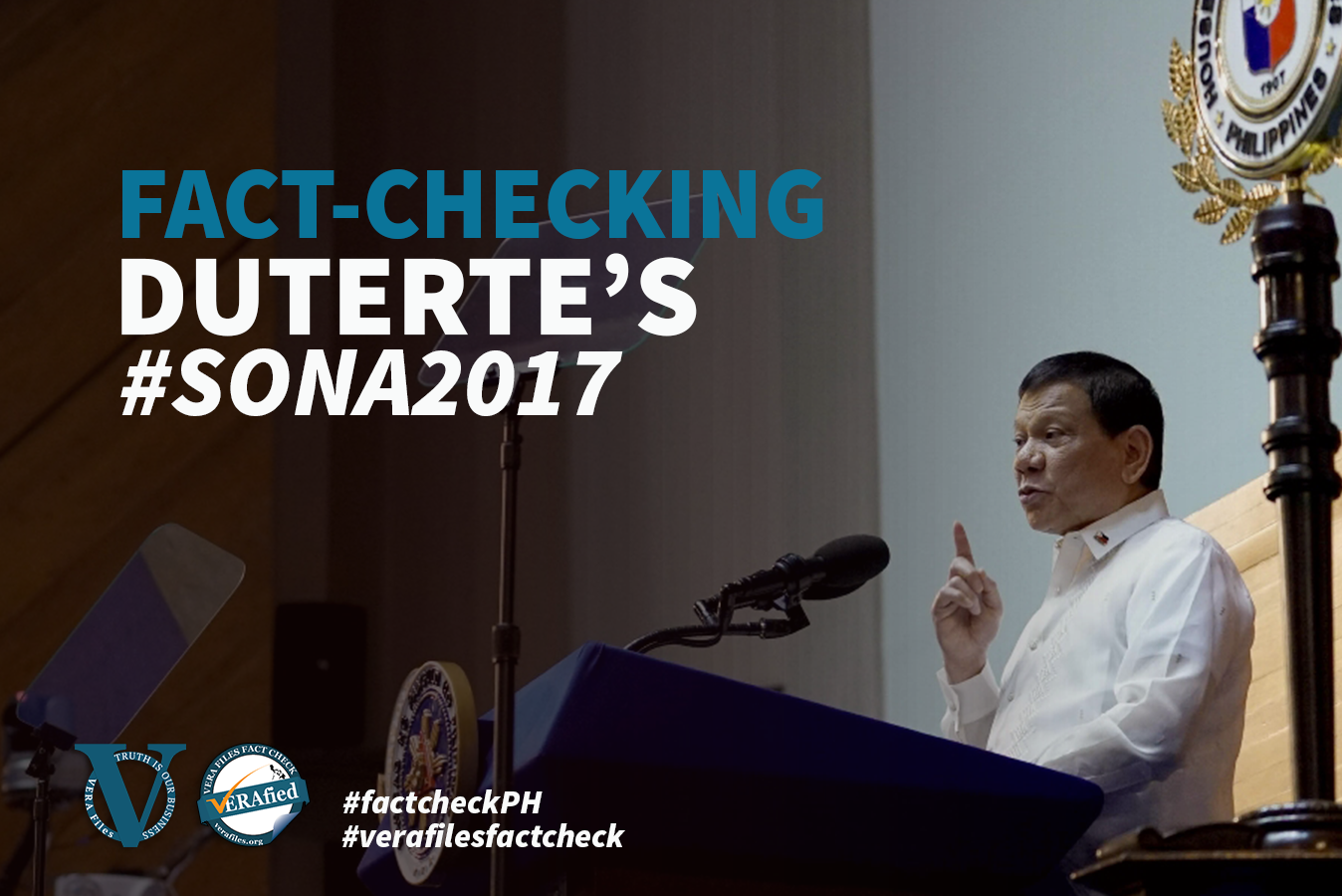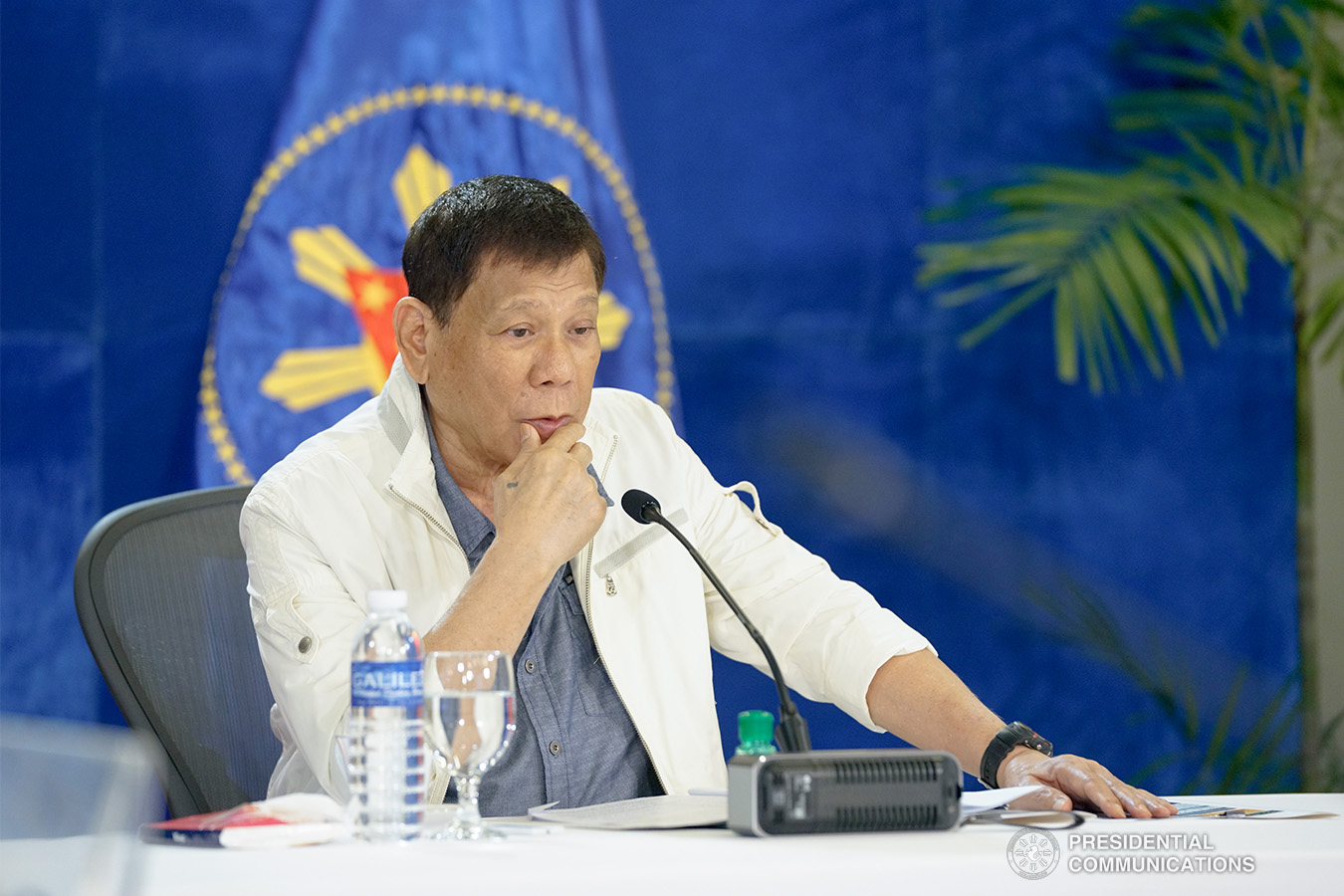Midway through his two-hour State of the Nation Address (SONA), President Rodrigo Duterte told a Cabinet official to “not mind” the Commission on Audit (COA).
Duterte, criticizing the delays in the delivery of medical equipment for the military, ostensibly because of existing procurement rules, singled out Health Secretary Paulyn Jean Ubial, and told her to “change the procedure.”
STATEMENT
Duterte said:
“Kaya sabi ko kay Ubial, hindi niya kasalanan (So I told Ubial, it’s not her fault)… it’s because of the procurement, pero ganoon kahaba (the process) is too lengthy. Is Secretary Ubial here? Are you here, Secretary? Change the procedure because I will change you…..But as a long term solution, I urge Congress to thoroughly review the existing procurement laws, and come up with legislation that will ensure prompt delivery of goods and services to the people – especially medicines and hospital equipments. Kasi itong military, ay sabi ko (I told the military), ‘Do not mind COA.’ I will answer for that.”
Source: 2nd State of the Nation Address (SONA) of President Rodrigo Roa Duterte, House of Representatives, Quezon City, July 24, 2017, watch from 02:18:12 to 02:20:13
FACT
This is not the first time Duterte made inaccurate claims about government procurement rules.
VERA Files had earlier fact-checked a similar statement made by the president in a speech in Butuan City on June 17, and noted three inaccuracies. (See VERA FILES FACT CHECK: Can the president order COA to bypass gov’t bidding rules?)
First, the president does not have the power to order an institution to bypass the procurement law or “change the procedure” stipulated in the law, without Congress amending the law itself.
Republic Act No. 9184 or the Government Procurement Reform Act (GPRA) does not allow for it, the Government Procurement Policy Board told VERA Files in an earlier interview, although Duterte himself, in the same statement, urged Congress to review existing procurement laws and come up with new legislation.
Second, COA does not take the lead in the bidding process.
Under the law, the bidding process for the purchase of goods, consulting services and infrastructure projects is led by the Bids and Awards Committee (BAC) of each government agency.
Mandated by the 1987 Constitution to audit all government expenditures, COA’s role in procurement is only to ensure transparency by sending an observer during the bidding process.
Third, even the military is not exempt from the law’s requirement of “competitive or public bidding,” which opens the entire bidding process to any interested party, regardless of whether the source of funding is local or foreign.
BACKSTORY
The government can resort to more efficient and economical alternative methods of procurement, provided that the most advantageous price is obtained. These include limited source bidding or selective bidding, direct contracting, repeat order, shopping and negotiated procurement.
Prior to urging Congress to come up with new legislation on government procurement procedures, Duterte signed Executive Order No. 34, which among others, simplifies the approval of government contracts entered into through alternative procurement methods.
E.O. No. 34, which Duterte signed on July 7, amends former president Gloria Macapagal-Arroyo’s E.O. No. 423, notably Section 4, discarding the provision that requires the procuring entity to seek the opinion of the GPPB and the approval of the National Economic and Development Authority (NEDA) director general before resorting to alternative modes of procurement for contracts amounting to at least P500 million.
“The requirement of GPPB determination and approval,” E.O. No. 34 notes, “adds to the total procurement process and timeline, and defeats the very purpose of resorting to alternative methods of procurement.”
Under the latest EO, the head of the procuring entity issues a certification under oath that the contract falls within the exceptions of public bidding.
Yet, in an earlier case regarding alternative procurement methods, the Supreme Court ruled in favor of a strong “compliance with the conditions provided in the GPRA and all the pertinent rules and procedures.”
In 2015, the high court ruled that the Commission on Elections (Comelec) committed grave abuse of discretion amounting to lack or excess of jurisdiction when it failed to justify its reasons for resorting to direct contracting method with technology provider Smartmatic-TechnoIogy Information Management instead of opening the bidding process to the public. As a result, the contract was nullified.
“While this Court recognizes that the Comelec should be given sufficient leeway in exercising its constitutional mandate,” the decision read, “it demands equal recognition that it is the Court’s constitutional duty to see to it that all governmental actions are legally permissible.”
Several bills to amend the GPRA have already been filed in Congress but are pending within the Committee on Appropriations.
Sources:
Executive Order No. 34, s. 2017
Executive Order No. 423, s. 2005
Republic Act No. 9184 or the Government Procurement Reform Act


